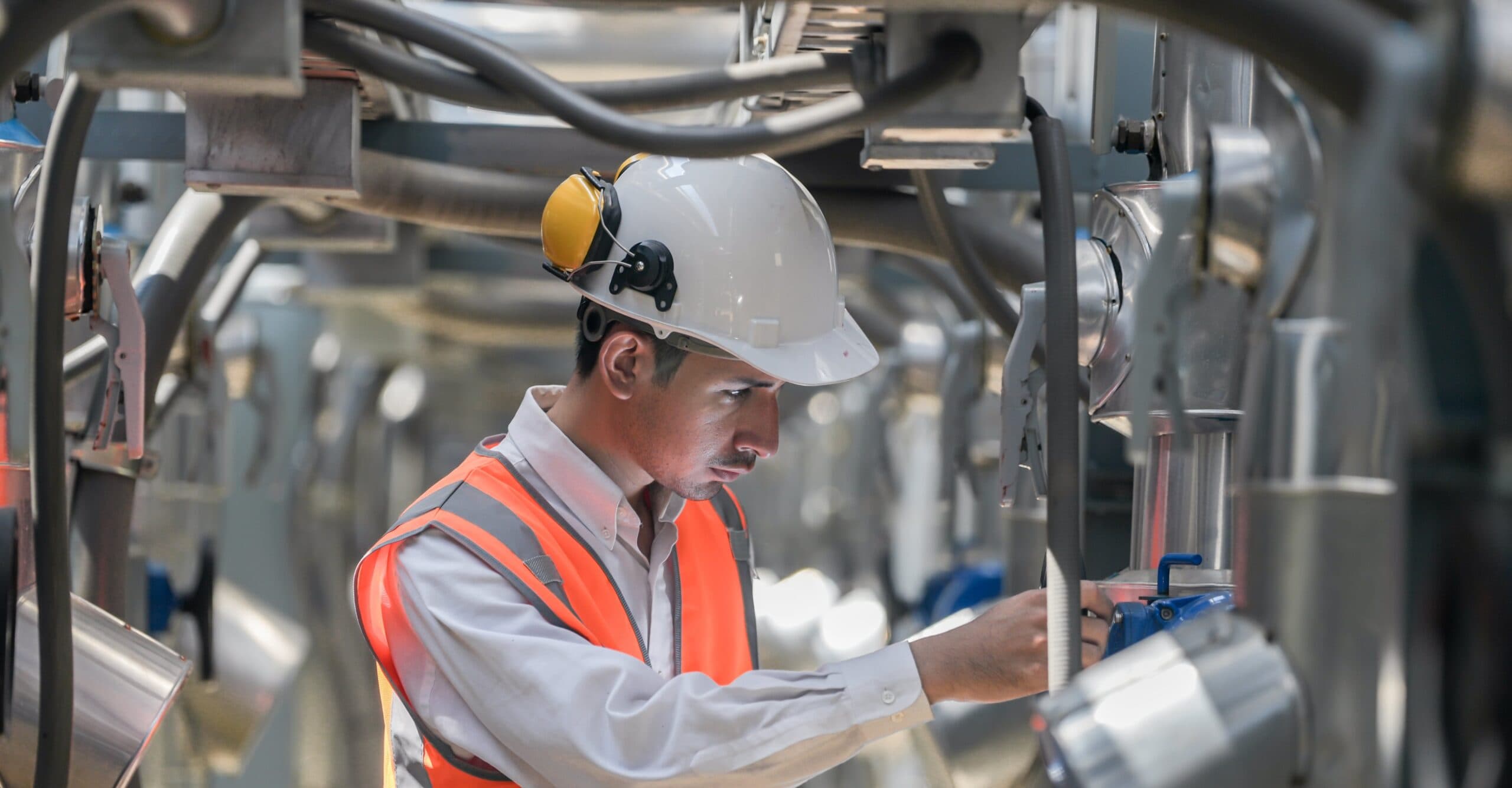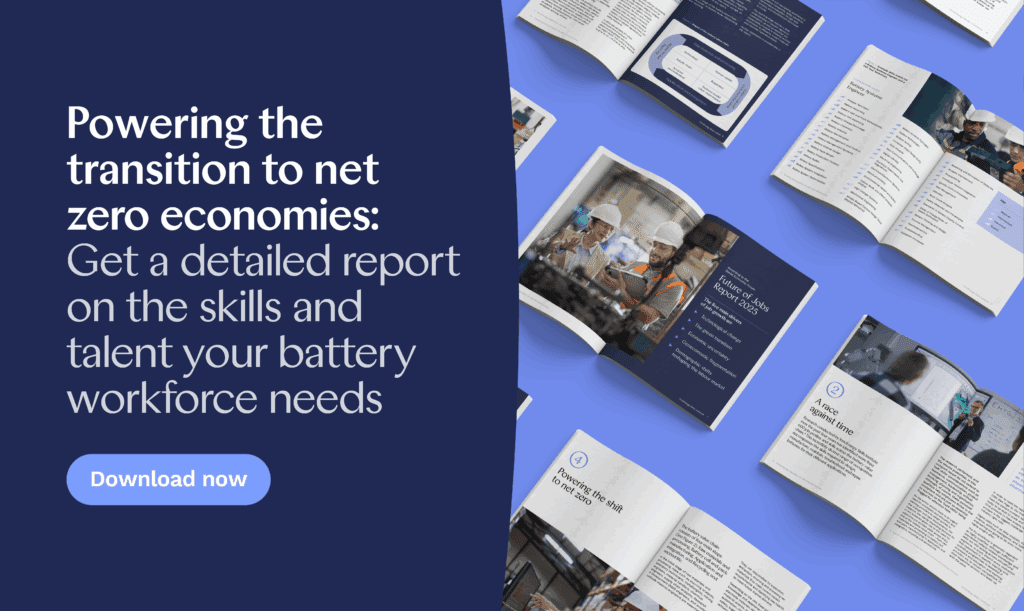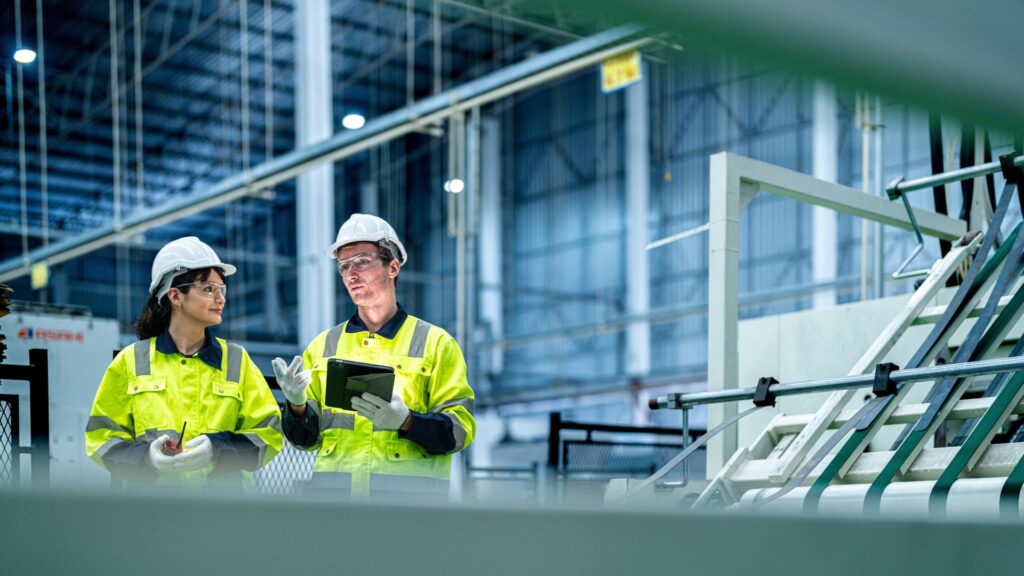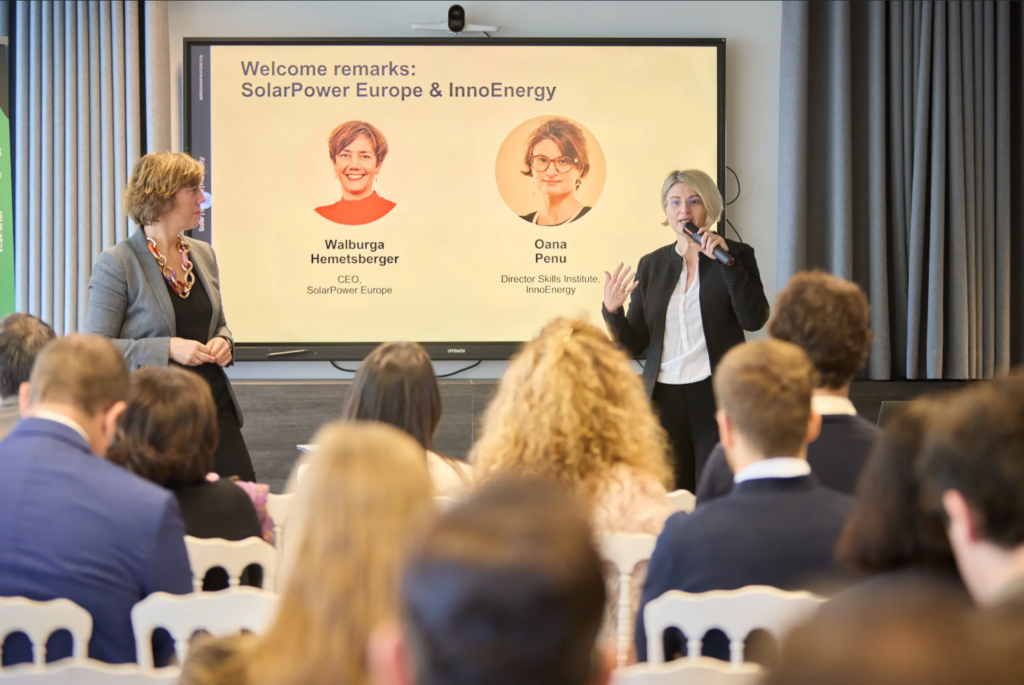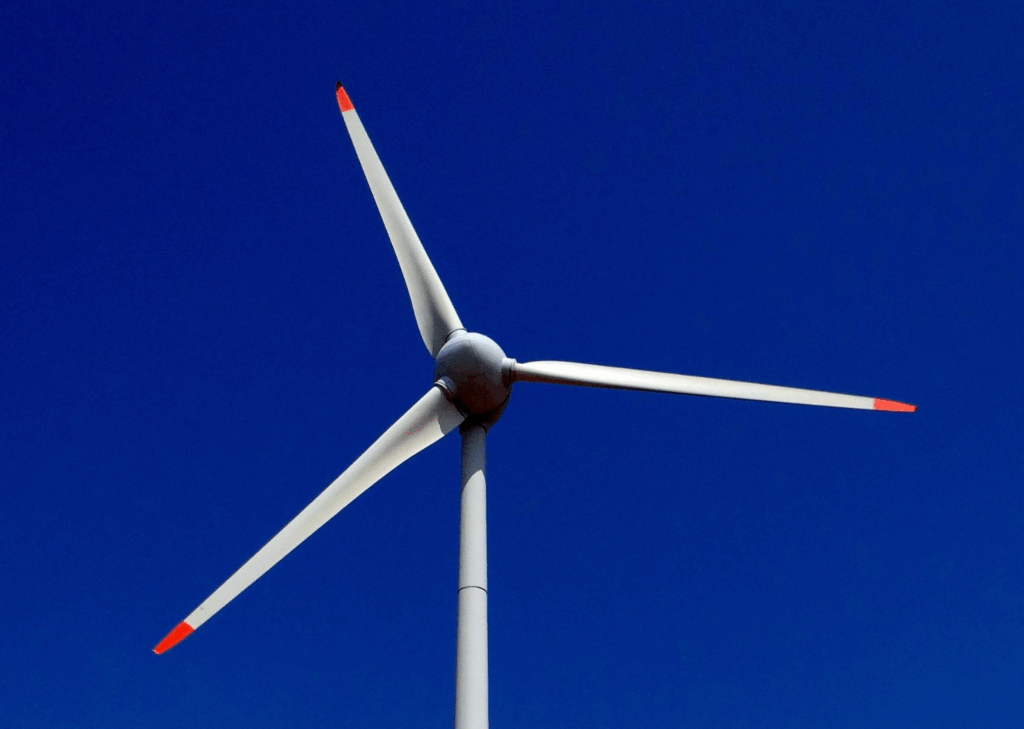For energy companies, especially those in Europe and the Middle East, billions are being committed to renewables, (green) hydrogen and electrification. But capital alone can’t deliver transformation. Too often, projects stall, budgets swell and targets slip, and not because of technology or funding gaps, but because there aren’t enough skilled people to deliver them.
The financial risk
In 2025, demand for green talent in Europe grew more than twice as fast as supply (CSE, 2025). Across the EU, the clean energy sector could be short more than 3.5 million skilled workers by 2030, including engineers, technicians and project managers who are essential for large-scale renewable projects (McKinsey, 2024).
The financial impact of this gap is immediate. A month of delay in a major project can result in millions of euros in lost revenue, higher contractor costs and missed incentive deadlines (Clean Energy Wire, 2024). In high-value offshore wind, each day of delay can cost hundreds of thousands of euros in vessel hire and penalties (Pager Power, 2024). Skills shortages also lead to wage inflation in critical roles, which increases operating costs year after year (AJG, 2024).
Regulatory compliance is another risk. Failure to meet EU decarbonisation and safety requirements can result in fines, licence suspensions and operational restrictions (European Commission, 2024). These incidents can also damage investor confidence and slow future project approvals.
The impact on return on investment
A clean tech strategy is only as strong as the workforce that delivers it. Delays, higher operating costs and compliance failures erode margins and extend payback periods. Evidence from industry studies shows how skills gaps translate into financial outcomes and how targeted upskilling can reverse the trend.
| Scenario | Financial impact of skills gap | ROI impact after upskilling |
| One-month delay in large-scale energy project (Clean Energy Wire, 2024) | €2-5 million in lost revenue and extra contractor costs | Projects delivered on schedule recover lost revenue and avoid extra costs |
| Offshore wind installation delay of one day (Pager Power, 2024) | €200,000-€300,000 in vessel hire and penalties | Skilled in-house teams reduce reliance on external specialists, avoiding delay costs |
| High-value battery manufacturing project missing incentive window (Clean Energy Wire, 2024) | Loss of subsidies worth up to 10% of project budget | Loss of subsidies worth up to 10% of the project budget |
| Critical role vacancies leading to premium contractor hire (AJG, 2024) | 20-40% higher labour cost per role over 12 months | Internal capability reduces dependency on premium-rate external labour |
| Regulatory non-compliance in EU decarbonisation targets (European Commission, 2024) | Fines, licence suspension, operational restrictions | Compliance embedded into delivery avoids penalties and operational downtime |
Upskilling as a strategic investment
Building capability internally changes project economics. Skilled teams can execute faster, integrate new technologies without disruption and meet compliance requirements as part of the delivery process. Internal capability reduces reliance on expensive external labour, allows parallel project execution and shortens payback periods. In other words, skills are not a delivery mechanism but rather a safeguard for capital.
Strategic upskilling protects the value of clean tech investments. It reduces risk exposure, improves project certainty and supports long-term competitiveness in markets where technological change and regulatory requirements continue to increase. But recognising the need for skills is only half the equation; the challenge is moving from strategy to execution.
From strategy to execution
InnoEnergy Skills Institute’s Green Talent Accelerator equips existing teams with the skills needed to deliver renewables, electrification and biofuels projects on time and on budget. It combines job profiles, skills intelligence and modular, industry-aligned training developed with sector experts and recognised by the European Commission. Programmes are designed to fit around operations, ensuring productivity is maintained while future capacity is built.
With the right workforce in place, capital investments achieve their intended return. Without it, even the most ambitious clean tech strategies risk underperformance.
